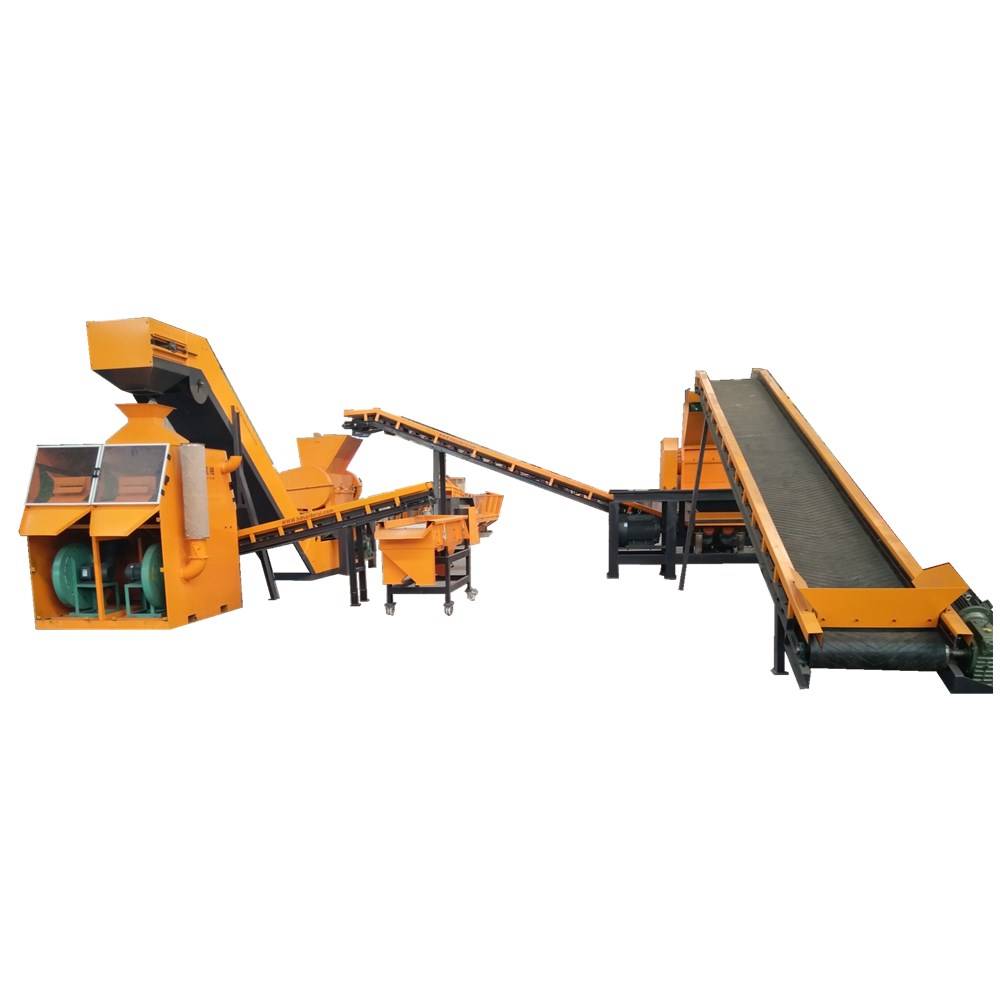

9월 . 29, 2024 04:20 Back to list
How Do You Dispose of Electrical Goods?
In our increasingly technology-driven world, electrical goods such as smartphones, laptops, televisions, and kitchen appliances play a vital role in our daily lives. However, as these items become outdated or broken, responsible disposal practices become essential. Properly disposing of electrical goods is not only a matter of environmental responsibility but also a legal obligation in many regions. Here’s a comprehensive guide on how to dispose of electrical goods in an eco-friendly and responsible manner.
Understanding the E-Waste Problem
Electrical and electronic waste, commonly referred to as e-waste, is one of the fastest-growing waste streams globally. In 2021, the world generated around 57.4 million metric tons of e-waste, with only 17.4% being recycled properly, according to the Global E-waste Monitor. The improper disposal of e-waste poses significant environmental risks, releasing harmful substances such as lead, mercury, and cadmium into soil and water, endangering both human health and ecosystems.
Assessing Your Electrical Goods
Before disposing of your electrical items, assess their condition. If the goods are still functional, consider reusing or donating them. Many charities and organizations welcome working electronics, from computers to small kitchen appliances. This not only extends the life of the items but also helps those in need and reduces the demand for new products.
Repairing vs. Disposing
In many cases, electrical goods can be repaired rather than discarded. Check if the product is covered by a warranty or if there are local repair shops specializing in the make and model of your device. Repairing items can be more cost-effective and environmentally friendly compared to purchasing new ones. If repair is not feasible, then you can proceed to dispose of the item responsibly.
Recycling E-Waste
Recycling is one of the best methods of disposing of electrical goods. Many components of electronic devices can be recovered and reused, thereby conserving resources and reducing landfill waste. Here are several recycling options

1. Manufacturer Take-Back Programs Many manufacturers offer take-back programs where consumers can return old devices for proper recycling. Brands like Apple and Dell have established these programs to minimize e-waste.
2. Local Recycling Centers Research local recycling centers that accept e-waste. Many municipalities have designated drop-off locations for electronics. Ensure that these centers follow environmentally sound practices in handling e-waste.
3. Collection Events Keep an eye out for community e-waste collection events, often organized by local governments or non-profits. These events provide an easy and accessible way to dispose of unwanted electronics.
4. Retailer Programs Some retailers, such as Best Buy and Home Depot, offer e-waste recycling programs. They may accept old electronics in exchange for discounts on new items or simply for responsible recycling.
Data Security
Before disposing of any device that stores personal information, such as smartphones and computers, it’s crucial to ensure that all data is securely wiped. Use data wiping software or factory reset options to erase all personal information. This prevents identity theft and protects your privacy.
Environmental Considerations
When disposing of electrical goods, it’s important to consider the potential environmental impact. Always choose methods that minimize harm to the planet. Avoid throwing electronic items in regular trash bins, as they will likely end up in landfills, where toxic materials can leach into the environment. Instead, prioritize recycling and proper disposal methods.
Conclusion
In summary, responsible disposal of electrical goods is essential for protecting our environment and conserving resources. Understanding the options available for reusing, repairing, and recycling e-waste can significantly reduce its environmental impact. By acting thoughtfully, we can ensure that our discarded electronics are handled in an eco-friendly way, contributing to a healthier planet. Take the time to research local resources and programs available in your area, and remember that each small action contributes to a larger positive outcome for our environment.
Latest news
The Future of Metal Recycling: Revolutionizing Waste Management
NewsMay.14,2025
Optimizing Waste with Recycling Lines
NewsMay.14,2025
Municipal Solid Waste Sorting Line: Revolutionizing Waste Management
NewsMay.14,2025
Metal Shredders: Essential Tools for Efficient Recycling
NewsMay.14,2025
Maximize Your Profits with a Copper Wire Granulator
NewsMay.14,2025
Home Metal Shredder: A Smart Choice for Your Home Recycling Needs
NewsMay.14,2025